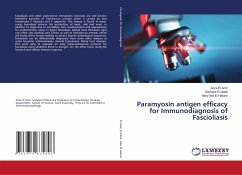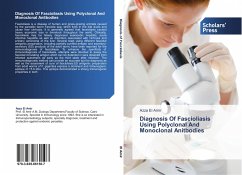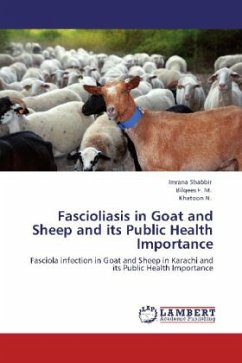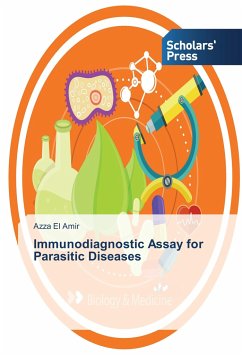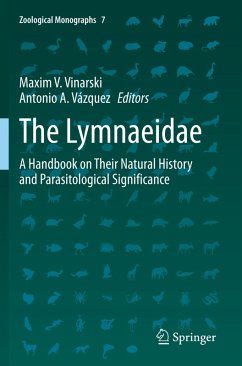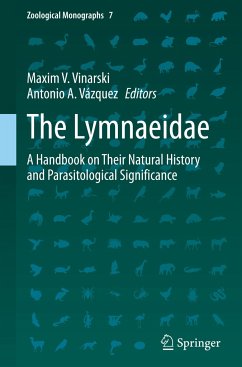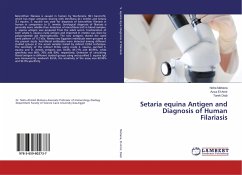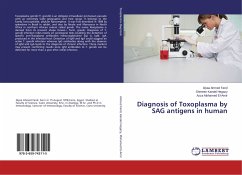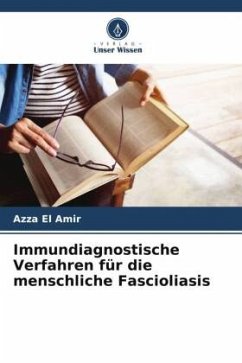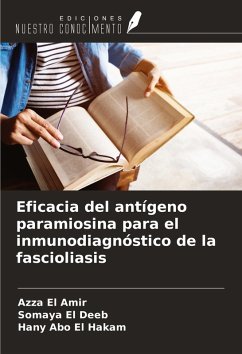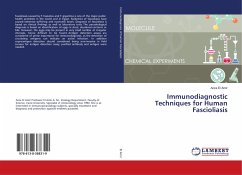
Immunodiagnostic Techniques for Human Fascioliasis
Versandkostenfrei!
Versandfertig in 6-10 Tagen
33,99 €
inkl. MwSt.

PAYBACK Punkte
17 °P sammeln!
Fascioliasis caused by F. hepatica and F. gigantica is one of the major public health problems in the world and in Egypt. Epidemics of fascioliasis have caused extensive suffering and economic losses. Diagnosis of fascioliasis is based on clinical findings as well as laboratory tests. The parasitological diagnosis is based on identification of eggs in stool, duodenal contents or bile. However, the eggs may be present in very small number at irregular intervals, hence difficult to be found. Antigen detection assays are considered of prime importance for immunodiagnosis, as the detection of circ...
Fascioliasis caused by F. hepatica and F. gigantica is one of the major public health problems in the world and in Egypt. Epidemics of fascioliasis have caused extensive suffering and economic losses. Diagnosis of fascioliasis is based on clinical findings as well as laboratory tests. The parasitological diagnosis is based on identification of eggs in stool, duodenal contents or bile. However, the eggs may be present in very small number at irregular intervals, hence difficult to be found. Antigen detection assays are considered of prime importance for immunodiagnosis, as the detection of circulating antigens can indicate an active infection. In addition coproantigen detection should considered being non-invasive in field surveys for antigen detection assay; purified antibody and antigen were needed.



